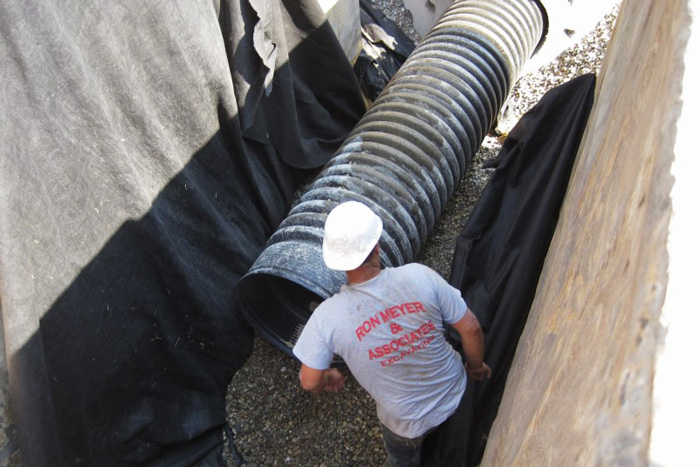
Thank you for joining our mailing list! You have signed up to receive information from Ron Meyer Excavating on steps you can take to be safe while trenching, seasonal safety information and other safety related tips.
Don’t Become a Statistic
Trenching can be fatal if actions aren’t taken to prevent accidents, but it doesn’t have to be. Preliminary planning and taking the necessary steps to be safe can literally save lives. Below are a few trenching tips to help keep you and your crew safe.
- Before you start digging, be sure to call 811 or visit www.missdig.org so the local utility company can mark the area. Did you know the MISS DIG website now offers customer service features through their website. Excavators and homeowners are able to check a status and request service directly online! (April is MISS DIG month, too!)
- While a couple feet may not seem deep, one cubic yard of soil can weigh as much as a car. OSHA standards require safe access and egress to all excavations. This means ladders, steps, ramps or any other way for employees to exit safely who are working in trenches 4 feet or deeper.
- Spring is rain season in Michigan. Keep in mind, weather can create shifts in soil and affect the trenches. Inspections should be conducted after every rainstorm and any other event that increases a hazardous environment.
Cave-In Protection
Cave-in protection systems aren’t one-size-fits-all. The type of system used will depend on soil classification, depth of cut, water content of soil, climate changes or surcharge loads (i.e. spoil, other materials used in trench).
Sloping: Cutting back the trench wall at an angle inclined away from excavation
Shoring: Installing aluminium hydraulic or other supports to prevent soil movement
Shielding: Uses trench boxes or other supports to prevent soil movement
Source: OSHA.org
- Getting a serious infraction during an OSHA visit to your jobsite for not having a safe trench will not only cost you money for the fine, but will hurt you for many years to come when trying to work with many general contractors. Most general contractors want to work with “safe” subcontractors only.
- The benefits for no injuries due to unsafe trenches can be a savings of many thousands of dollars to your company during insurance renewal of both workers’ compensation and liability coverage.
- A team approach to keeping your employees safe not only makes the employees happy, but their families as well. No employee wants to knowingly work under unsafe conditions. Management needs to make themselves available to their employees so they can freely express any safety concerns without fear of repercussions.